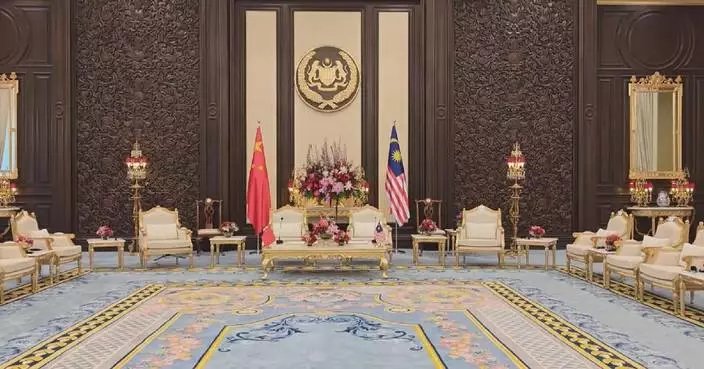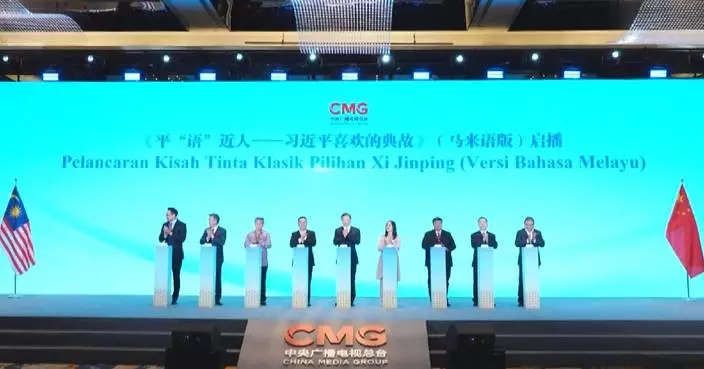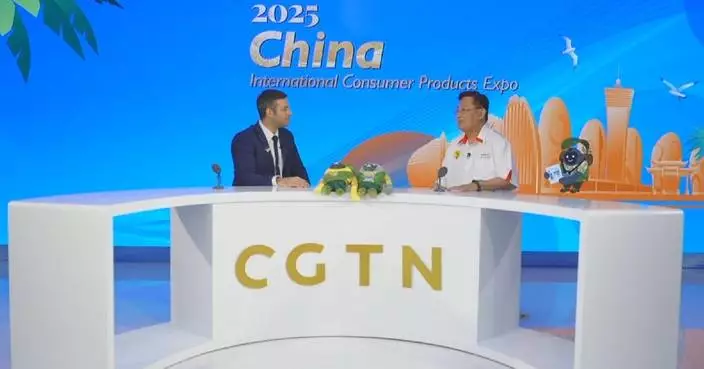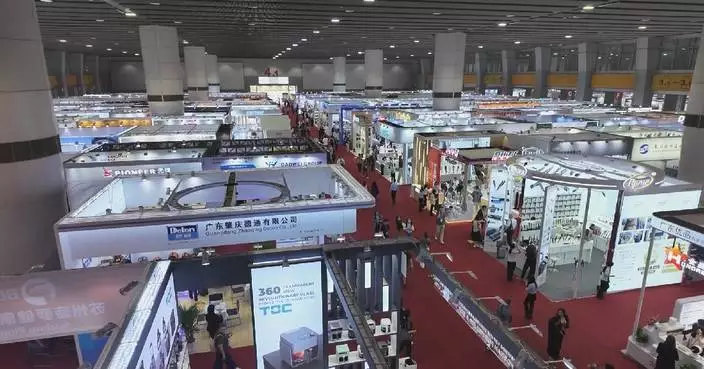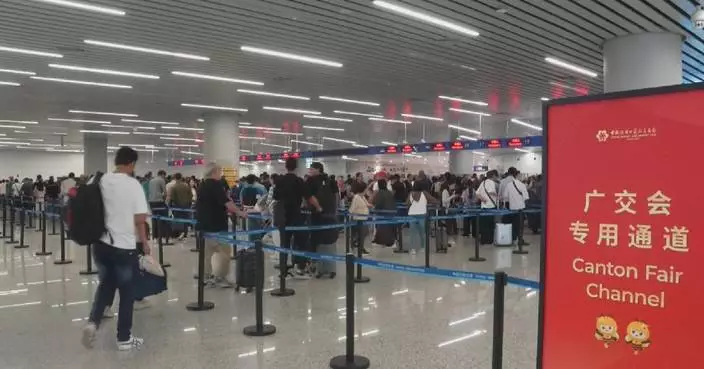U.S. consumer inflation in March increased 2.4 percent from a year ago, after rising 3.0 percent in January and 2.8 percent in February, the U.S. Labor Department reported Thursday.
Although inflation has been slowing down, analysts warn that the Trump administration's increased tariffs could drive prices up in the near future.
According to a report released by the Bureau of Labor Statistics, the Consumer Price Index (CPI), a broad measure of goods and services costs across the U.S. economy, decreased 0.1 percent on a seasonally adjusted basis in March after rising 0.5 percent in January and 0.2 percent in February.
Despite the overall data cooling slightly, egg prices in March increased 5.9 percent month-over-month and 60.4 percent year over year, reflecting an unresolved egg shortage in the United States.
U.S. egg prices continued to surge due to a shortage of egg-laying hens amid an outbreak of avian influenza, also known as bird flu, adding continued pressure to the inflationary landscape.
The latest inflation report showed that the so-called core CPI, which excludes food and energy, grew 0.1 percent in March, following a 0.2 percent rise in February.
The core CPI rose 2.8 percent over the last 12 months ending March, down from a growth of 3.1 percent in February, signaling continuous inflationary pressure.
Indexes that increased over the month include personal care, medical care, education, apparel, and new vehicles. The indexes for airline fares, motor vehicle insurance, used cars and trucks, and recreation were among the major indexes that decreased in March.
Observers believe policies such as widespread tariff hikes could further raise inflation.
A poll recently released by Reuters and Ipsos showed that as Trump imposes broad tariffs on goods from most parts of the world, a majority of Americans are bracing for rising prices on everyday consumer products. Some 73 percent of respondents believe that after the new tariffs on nearly all imported goods take effect, the prices of items they regularly purchase will increase over the next six months.

US CPI cools in March, but tariffs may push inflation higher

US CPI cools in March, but tariffs may push inflation higher

US CPI cools in March, but tariffs may push inflation higher
Iran's Supreme Leader Ali Khamenei on Tuesday warned against "extreme optimism or pessimism" in the country about the indirect talks between Iran and the United States.
He made the remarks at a meeting with senior government officials in Iran's capital Tehran while pointing to the talks between Iranian Foreign Minister Seyed Abbas Araghchi and U.S. Special Envoy to the Middle East Steve Witkoff on Iran’s nuclear program and removing sanctions, the first round of which was held in the Omani capital Muscat on Saturday, according to a statement published on his website on Tuesday.
"We should not be extremely optimistic or extremely pessimistic about these talks," he said, adding that the negotiations may or may not yield results.
He stressed, "We are, of course, very distrustful of the other side. However, we are optimistic about our capabilities."
The Iranian leader also cautioned against "tying the country's affairs to the talks," emphasizing that activities in industrial, economic, construction, and cultural sectors, as well as the implementation of major projects, should proceed uninterrupted, as they are unrelated to the talks in Oman.
The second round of the indirect talks between Iran and the United States is scheduled to be held on this coming Saturday in Muscat.
According to U.S. media reports on Tuesday, the second aircraft carrier strike group deployed by the U.S. military in the Middle East had arrived in waters near Yemen, ahead of the second round of negotiations between the United States and Iran.
Satellite images show that the U.S. aircraft carrier Carl Vinson is currently positioned near Socotra Island off the coast of Yemen in the Gulf of Aden, according to the U.S. media reports.
Accompanying it are a cruiser and two destroyers, thus forming a dual U.S. carrier strike group in the region.
The U.S. Navy's Fifth Fleet, headquartered in Bahrain, declined to provide details about the mission of this carrier strike group.
The latest talks between Iran and the Untied States were proposed by U.S. President Donald Trump, who threatened Iran with bombing and secondary tariffs if Iran did not come to an agreement with the United States over its nuclear program.
Iran signed a nuclear deal, formally known as the Joint Comprehensive Plan of Action, with six major countries -- Britain, China, France, Germany, Russia, and the United States -- in July 2015, accepting restrictions on its nuclear program in return for sanctions relief.
However, the United States withdrew from the deal in May 2018 and reinstated sanctions, prompting Iran to scale back some of its nuclear commitments. Efforts to revive the nuclear deal have not achieved substantial progress.

Iranian leader warns against extreme optimism, pessimism about talks with US







